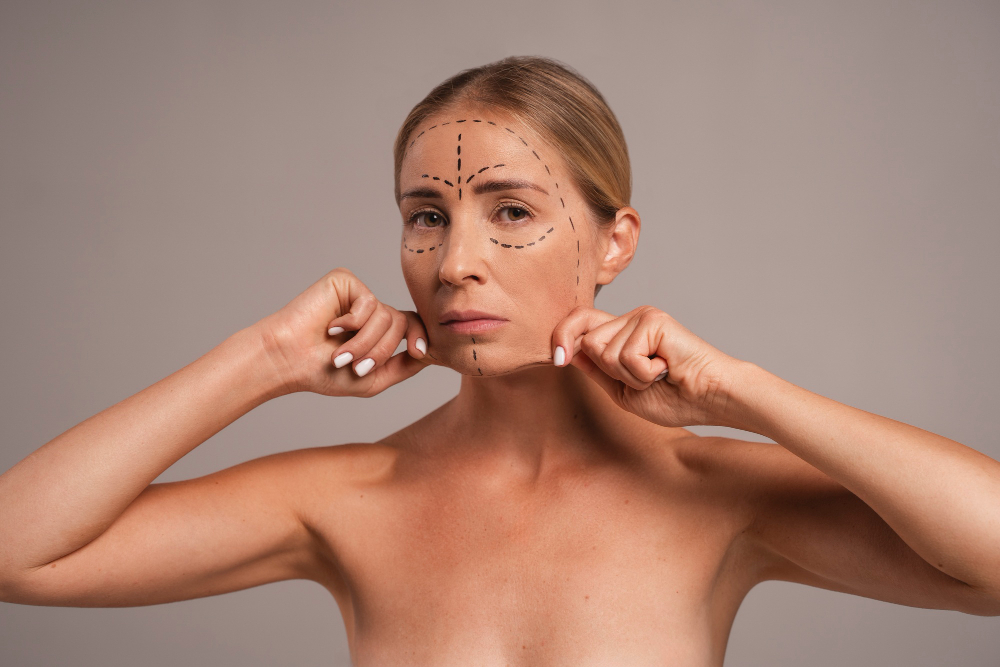Have you heard about retinol? It is a renounced skincare product that is widely used among individuals of all ages across the globe. It is a form of vitamin A, that is known for its powerful and highly effective anti-aging properties. However, with so much information available on retinol, it can be challenging to separate the facts from fiction.
In this article, well debunk some top 5 myths about retinol that you must eliminate ASAP! So, if you're a skincare enthusiast wanting to incorporate retinol into your skincare routine, this article is a must-read for you! It'll help you choose wisely that you won't regret later on! So, without further ado, let's dive right into it!
What are the 5 Common Myths of Retinol, and Whats the Actual Truth Behind Them?
Retinol, aka vitamin A derivative, is highly popular among skincare products that can help you nullify the signs of aging, improve your skin texture, and boost collagen production. Despite its benefits, several myths about retinol need to be debunked. Here are top 5 myths and the actual truth just for you:
Retinol is Only for Mature Skin
Many audiences believe that retinol is only suitable for mature skin. However, this is far from the truth. Retinol is highly beneficial for all age groups. In fact, it is recommended to start using retinol using retinol in your mid to late-20s to prevent the signs of aging from appearing in the first place.
Did you know that retinol works by stimulating collagen production? Yes, this can help your skin to pump up and reduce the appearance of any fine lines around the eyes, corners of mouth, etc. On top of it, it also helps to regulate oil production, which can prevent acne breakouts in younger skin.
Retinol Will Make Your Skin Peel
Another common myth about retinol is that it peels your skin. While its true that retinol can cause some dryness and flakiness. However, this is a sign that the product is working. The peeling is, in fact, the result of the increased cell turnover that retinol stimulates. For those who may not know, cell turnover is when old and weary cells are replaced by new and healthy skin cells.
However, this can be managed by using the low concentration of retinol and gradually increasing it overtime. It is also important to moisturize your skin to combat dryness and restore the hydration of your skin.
Retinol Should Only be Used at Night
We have frequently heard retinol users claiming that it should only be used at night. Yes, it is true that retinol can make your skin more sensitive to the sun. Yet, it doesn't mean that you cannot use it during the day. Here, the key is to make sure that you wear sunscreen with a high SPF every day to protect your skin from UV damage.

You can also use a retinol product that has been formulated for the daytime use. This way, itll automatically contain the ingredients that you need to protect yourself from direct sunlight.
Retinol is Not Safe During Pregnancy
One of the most common myths about retinol is that it is not safe to use during pregnancy. While high doses of vitamin A can harm the fetus's development. However, the amount of retinol found in skincare is considered safe to use. It is best to consult with a doctor and find a common ground for your needs.
This way, your needs would be fulfilled without troubling your health and causing any mishap that may result in future damage.
Retinol is Not Safe for Sensitive Skin
Retinol is often thought to be too harsh for sensitive skin types. However, this is not necessarily true. Yes, sometimes retinol does cause some redness and dryness due to cell turnover, but you can always maintain the type of retinol concentration that fits your skin.
You can also choose retinol products containing soothing ingredients such as aloe vera and chamomile. Moreover, it would be the best if your start off with products that feature lower concentration of retinol and follow your skin reactions to check what suits it the best.
Top 7 Skin Conditions That Can Be Treated Using Retinol
Retinol, is known for its anti-aging benefits and ability to improve the overall appearance of the skin. However, it also has many other uses, like treating various skin conditions. Here are the top 7 skin conditions that can be treated using retinol:
- Acne: Retinol is an effective treatment for acne as it helps to unclog pores and prevent the formation of new pimples. It also helps to reduce inflammation and redness associated with acne.
- Fine Lines and Wrinkles: Retinol is a powerful anti-aging ingredient that helps to stimulate collagen production and improve skin elasticity. It can help reduce fine lines and wrinkles, leaving the skin looking smoother and more youthful.

- Hyperpigmentation: Retinol can help to even out skin tone and reduce the appearance of dark spots and hyperpigmentation. It works by increasing cell turnover and promoting the growth of new skin cells.
- Sun Damage: Retinol is also effective in treating sun damage, including sunspots and freckles. It helps to repair the skin and prevent further damage by neutralizing free radicals.
- Keratosis Pilaris: This is a common skin condition that causes small, rough bumps on the skin. Retinol can help to smooth out the bumps and improve the texture of the skin.
- Psoriasis: Retinol has been shown to be effective in treating psoriasis, a chronic autoimmune condition that causes red, scaly patches on the skin. It works by reducing inflammation and promoting healthy skin cell growth.
- Eczema: You can also use retinol to treat eczema, a condition that causes dry, itchy skin. It helps to improve the skin's moisture barrier and reduce inflammation, leading to smoother, healthier-looking skin.
Wrapping it Up!
Retinol is a highly effective ingredient in skincare that can provide numerous benefits for the skin. Despite some common myths surrounding its use, retinol has been extensively researched and proven to be safe and beneficial. So, don't be afraid to incorporate retinol into your skincare routine and enjoy its many benefits.

How to cope with the stress of social isolation: A Complete Guide
Oct 15, 2024

Discover how magnesium can benefit your health and well-being, from improved sleep quality to reducing stress levels.
Jan 29, 2024

7 The Best Ways To Live Your Best Life with Multiple Sclerosis
Jan 19, 2024

Ensuring Water Safety: Steps to Prevent Drowning – Adults and Kids
Nov 03, 2023

Understanding Deodorant vs. Antiperspirant: Make Informed Personal Care Choices
Mar 07, 2024

Heatwaves and Heart Health: The Rising Cardiac Risks
Dec 09, 2023

How to Remove Eye Makeup Safely and Effectively: A Step-by-Step Guide
Mar 10, 2024

Granulated Sugar: Nutritional Insights and Health Implications
Dec 23, 2023

How Are Allergies Treated? Your Comprehensive Guide
Jan 15, 2024

Mastering the Pallof Press: Techniques and Benefits
Nov 06, 2023

Unveiling Fresh Routes for Myasthenia Gravis Management
Nov 01, 2023

Which Skin Care Ingredients are Suitable for Winter Use? Here's A List
Mar 14, 2024